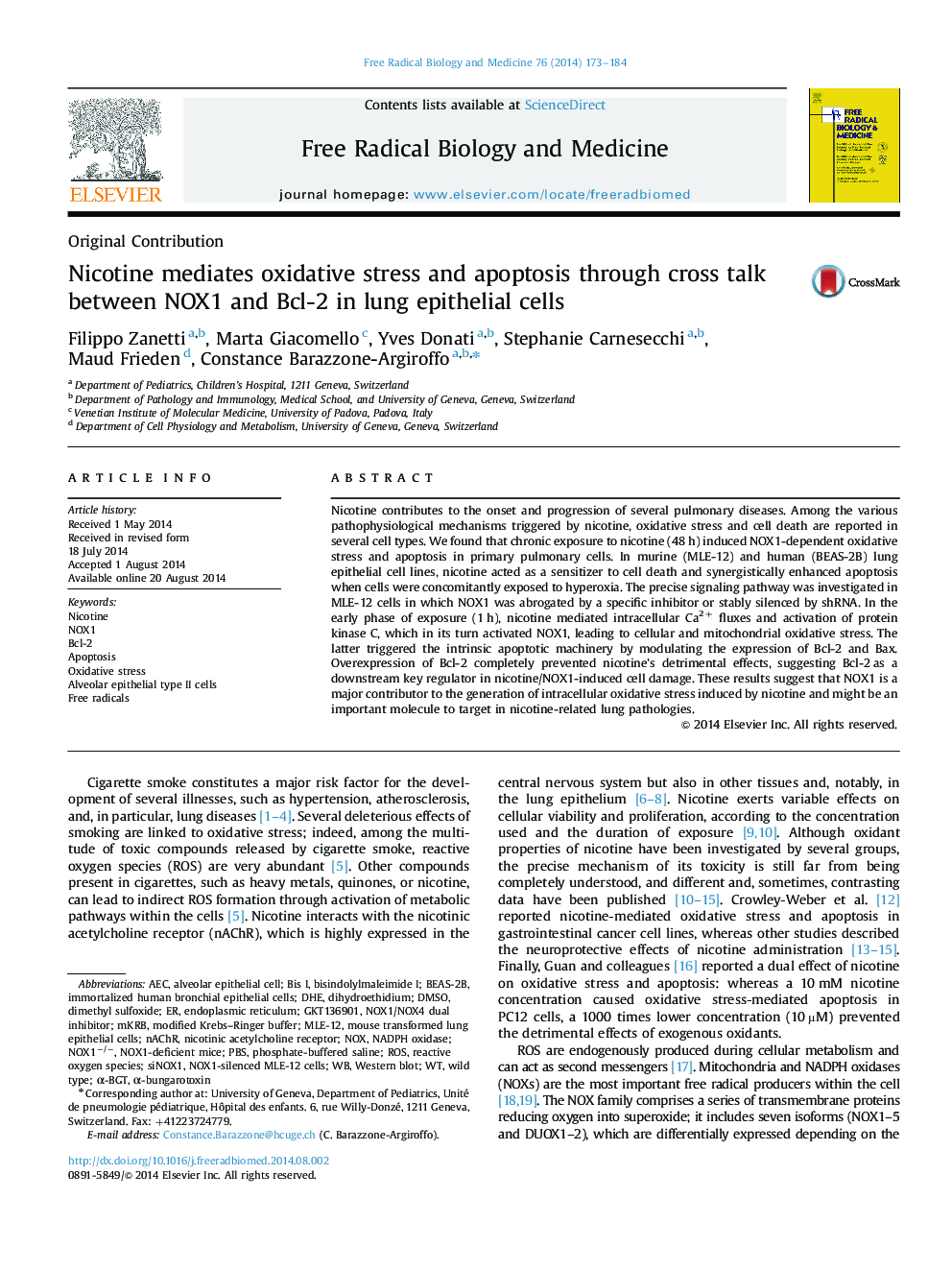| Article ID | Journal | Published Year | Pages | File Type |
|---|---|---|---|---|
| 8269937 | Free Radical Biology and Medicine | 2014 | 12 Pages |
Abstract
Nicotine contributes to the onset and progression of several pulmonary diseases. Among the various pathophysiological mechanisms triggered by nicotine, oxidative stress and cell death are reported in several cell types. We found that chronic exposure to nicotine (48Â h) induced NOX1-dependent oxidative stress and apoptosis in primary pulmonary cells. In murine (MLE-12) and human (BEAS-2B) lung epithelial cell lines, nicotine acted as a sensitizer to cell death and synergistically enhanced apoptosis when cells were concomitantly exposed to hyperoxia. The precise signaling pathway was investigated in MLE-12 cells in which NOX1 was abrogated by a specific inhibitor or stably silenced by shRNA. In the early phase of exposure (1Â h), nicotine mediated intracellular Ca2+ fluxes and activation of protein kinase C, which in its turn activated NOX1, leading to cellular and mitochondrial oxidative stress. The latter triggered the intrinsic apoptotic machinery by modulating the expression of Bcl-2 and Bax. Overexpression of Bcl-2 completely prevented nicotine's detrimental effects, suggesting Bcl-2Â as a downstream key regulator in nicotine/NOX1-induced cell damage. These results suggest that NOX1 is a major contributor to the generation of intracellular oxidative stress induced by nicotine and might be an important molecule to target in nicotine-related lung pathologies.
Keywords
Bcl-2BIS IAlveolar epithelial type II cellsNOX1BEAS-2BAECα-Bgtα-bungarotoxinnAChRPBSDMSONOxROSNADPH oxidasebisindolylmaleimide IOxidative stressApoptosisdihydroethidiumDimethyl sulfoxideFree radicalsalveolar epithelial cellendoplasmic reticulumPhosphate-buffered salinewild typeNicotineDHEWestern blotReactive oxygen speciesnicotinic acetylcholine receptor
Related Topics
Life Sciences
Biochemistry, Genetics and Molecular Biology
Ageing
Authors
Filippo Zanetti, Marta Giacomello, Yves Donati, Stephanie Carnesecchi, Maud Frieden, Constance Barazzone-Argiroffo,
